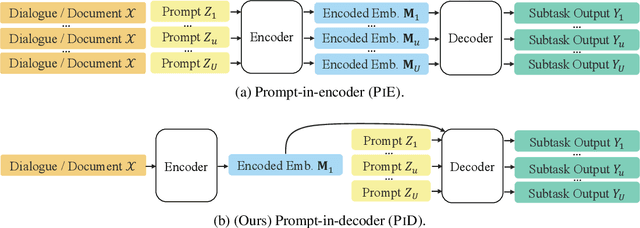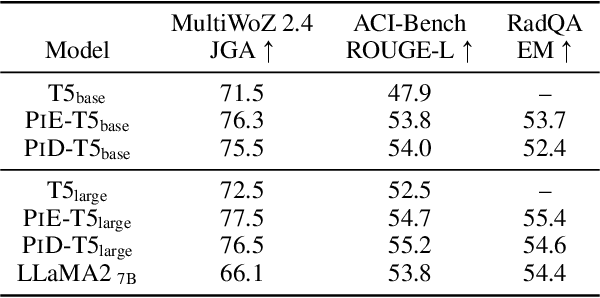Encode Once and Decode in Parallel: Efficient Transformer Decoding
Paper and Code
Mar 19, 2024



Transformer-based NLP models are powerful but have high computational costs that limit deployment scenarios. Finetuned encoder-decoder models are popular in specialized domains and can outperform larger more generalized decoder-only models, such as GPT-4. We introduce a new configuration for encoder-decoder models that improves efficiency on structured output and question-answering tasks where multiple outputs are required of a single input. Our method, prompt-in-decoder (PiD), encodes the input once and decodes output in parallel, boosting both training and inference efficiency by avoiding duplicate input encoding, thereby reducing the decoder's memory footprint. We achieve computation reduction that roughly scales with the number of subtasks, gaining up to 4.6x speed-up over state-of-the-art models for dialogue state tracking, summarization, and question-answering tasks with comparable or better performance. We release our training/inference code and checkpoints.
 Add to Chrome
Add to Chrome Add to Firefox
Add to Firefox Add to Edge
Add to Edge